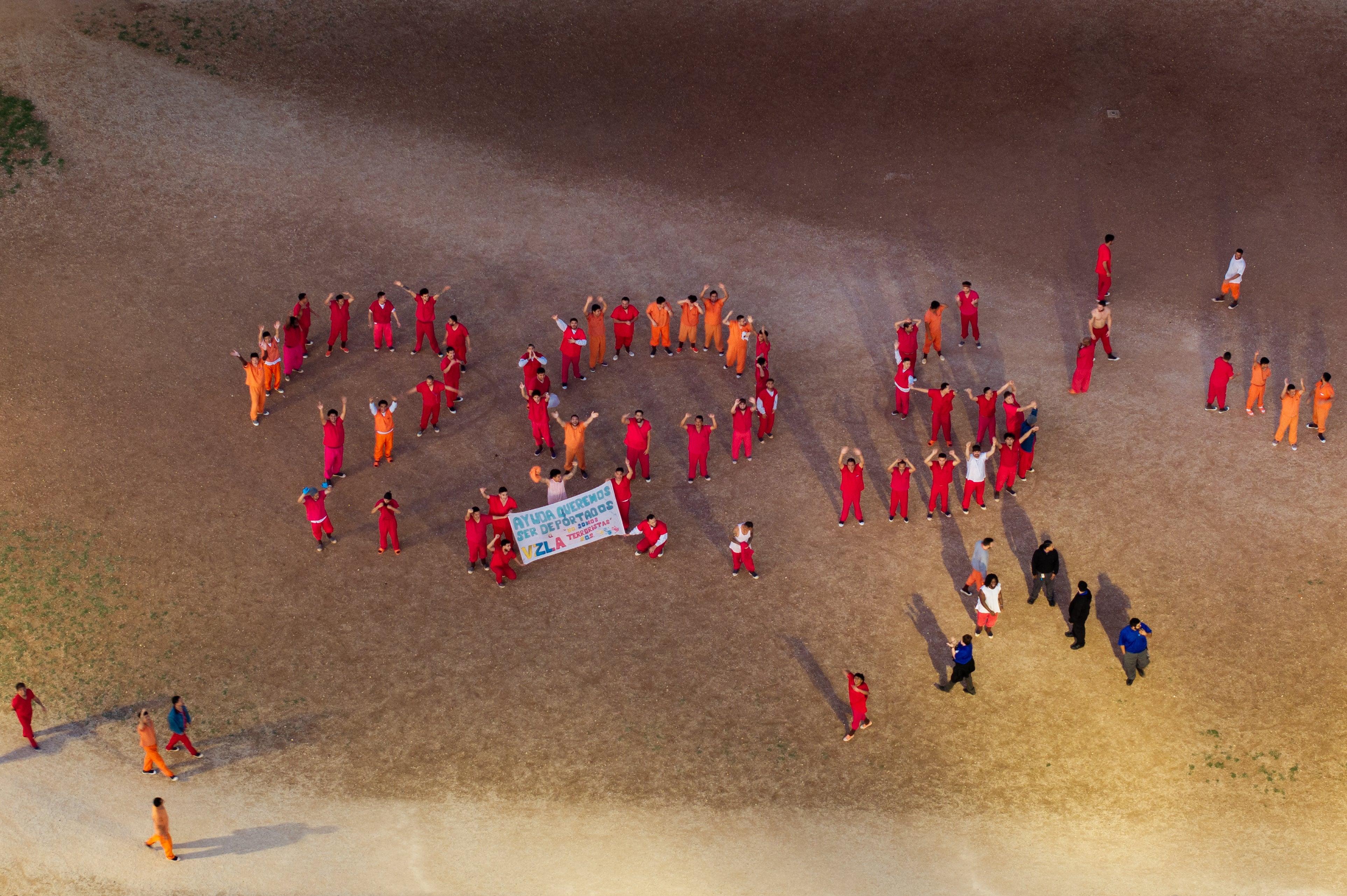The Supreme Court will continue blocking Donald Trump’s administration from summarily deporting alleged Venezuelan gang members from the United States after the government rushed to try to remove immigrants from the country without adequate due process last month.
“Under these circumstances, notice roughly 24 hours before removal, devoid of information about how to exercise due process rights to contest that removal, surely does not pass muster,” the justices wrote Friday.
The 7-2 decision — with conservative justices Samuel Alito and Clarence Thomas dissenting — argues that the immigrants detained in Texas under the president’s use of the wartime Alien Enemies Act must have “sufficient time and information to reasonably be able to” get in touch with lawyers and file legal challenges.
Under the ruling, the administration is barred from deporting immigrants jailed in Texas under the Alien Enemies Act, for now, and an appeals court will consider whether immigrants can even be deported under Trump’s invocation of the centuries-old law.
Reacting to the news, Trump wrote on Truth Social: “THE SUPREME COURT WON’T ALLOW US TO GET CRIMINALS OUT OF OUR COUNTRY!”
In another post, he claimed the ruling means “the worst murderers, drug dealers, gang members, and even those who are mentally insane, who came into our Country illegally, are not allowed to be forced out without going through a long, protracted, and expensive Legal Process, one that will take, possibly, many years for each person, and one that will allow these people to commit many crimes before they even see the inside of a Courthouse.”
“The Supreme Court of the United States is not allowing me to do what I was elected to do,” he wrote.
He then thanked Alito and Thomas for “attempting to protect our Country.”
“This is a bad and dangerous day for America!” Trump said.
Nearly two months after deporting dozens of Venezuelans to a notorious Salvadoran prison, the Trump administration is embroiled in courtroom battles across the country — and at the nation’s highest court — following challenges to the president’s use of the Alien Enemies Act to rapidly deport alleged Tren de Aragua gang members.
The Supreme Court has previously issued two orders stemming from those cases. Justices agreed that the president could rely on the centuries-old wartime law to remove immigrants from the country — provided they first have an opportunity to challenge those claims in court — and then temporarily blocked the government from deporting another group of Venezuelans in Texas while their lawyers scrambled to challenge the allegations against them.
In his proclamation invoking the Alien Enemies Act, Trump stated that “all Venezuelan citizens 14 years of age or older who are members of [Tren de Aragua], are within the United States, and are not actually naturalized or lawful permanent residents of the United States are liable to be apprehended, restrained, secured, and removed as Alien Enemies.”
The administration then summarily deported dozens of Venezuelans to El Salvador’s Terrorism Confinement Center on March 15.
But government officials later admitted that “many” of them did not have criminal records, and attorneys and family members say their clients and relatives — some of whom were in the country with legal permission and have upcoming court hearings on their asylum claims — have nothing to do with Tren de Aragua.

After learning that the government was preparing to deport more Venezuelans detained at the Bluebonnet Detention Center last month, immigrants’ attorneys quickly filed a lawsuit to block their removal. A Trump-appointed federal judge declined to issue an order that would temporarily block the deportations, and attorneys for the men appealed to the Supreme Court to intervene.
The high court temporarily paused their removals at midnight on April 19, writing that the government is “directed not to remove any member of the putative class of detainees from the United States until further order of this court.”
Friday’s ruling keeps that order in place until the justices consider any further appeals from the appellate court.
In filings to the Supreme Court, the Trump administration argued that detained immigrants in Texas had “adequate time” to file challenges to their detention.
But lawyers for the ACLU representing the men said they were given an “English-only form, not provided to any attorney, which nowhere mentions the right to contest the designation or removal, much less explain how detainees could do so.”
That “comes nowhere near” adequate due process, attorneys wrote.
“Whatever due process may require in this context, it does not allow removing a person to a possible life sentence without trial, in a prison known for torture and other abuse, a mere 24 hours after providing an English-only notice form (not provided to any attorney) that gives no information about the person’s right to seek judicial review, much less the process or timeline for doing so,” attorneys wrote.
The justices wrote that if officials claim they can’t retrieve immigrants from El Salvador’s brutal prison even when ordered to, like in the case of Kilmar Abrego Garcia, then the government should consider the “particularly weighty” consequences of deporting immigrants to a prison where they face the prospect of indefinite detention.
Secret Service interviewing James Comey over ‘8647’ Trump ‘death’ threat: report
Moody’s downgrades US credit rating from top level for first time over soaring debt
Judge says ‘my head is spinning’ after sparring with Trump admin over Abrego Garcia
DHS asks for 20,000 National Guard troops for immigration roundups, Pentagon reviewing request
Why these Republicans finally stood up to Trump – and the price they could pay
Diddy allies are already trying to secure Trump pardon for rapper, report says







